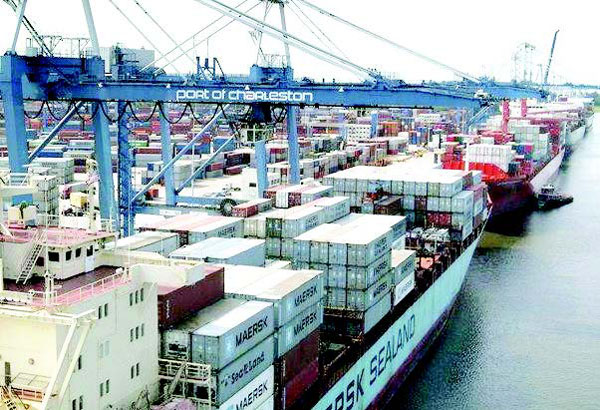APM Terminals Apapa, one of Nigeria’s largest and busiest container terminals, has announced a temporary suspension of empty container reception at its Apapa facility. The decision, according to the terminal operator, was taken in response to a sharp increase in import volumes which has created significant congestion at the port’s yard.
The company’s Terminal Manager, Steen Knudsen, explained that the overwhelming inflow of import-laden containers in recent weeks has left little room for the storage and processing of empty containers. Shipping lines, he noted, have prioritized the unloading of imports, leading to a growing backlog of empties and a critically constrained yard space.

“As a result of this accumulation, APM Terminals Apapa has had to temporarily restrict the reception of additional empty containers until the existing stock is cleared by the shipping lines,” Knudsen stated. He emphasized that the movement and evacuation of empty containers is the responsibility of the shipping lines, who own the containers and determine their logistics plans.
This development has sparked concerns across Nigeria’s maritime and logistics sector. The decision to halt the collection of empties has left hundreds of container-bearing trucks stranded on access roads leading to the port. Many of these vehicles have been waiting for days without being able to return the containers, incurring additional operational costs for transporters.
The Association of Maritime Truck Owners (AMATO) has been particularly vocal about the impact of the suspension. According to the association’s National Secretary, Muhammed Bala Sanni, the situation has already caused widespread disruption in the haulage sector. Truckers, he said, are bearing the brunt of delays, demurrage, and financial losses, while shipping companies have yet to offer compensation or timely alternatives.
“Our members have hundreds of trucks stuck on the roads with empty containers that are not being received by APM Terminals,” Sanni said. “We are not getting any form of relief or guidance from the shipping companies, and the government has remained silent.”
Sanni called on the Nigerian Ports Authority (NPA) and the Nigerian Shippers’ Council (NSC) to intervene, describing the situation as unsustainable. He also hinted that AMATO may be forced to take drastic measures, including protests or work stoppages, if urgent steps are not taken to resolve the gridlock.
The current impasse highlights deeper issues in the country’s port infrastructure and logistics ecosystem. The Apapa port corridor has long struggled with congestion, aging infrastructure, and poor coordination between key stakeholders. Analysts say the suspension of container collection could exacerbate delays in supply chains, affect the delivery of goods, and drive up prices of imported items.
APM Terminals, however, has assured stakeholders of its commitment to resolving the issue swiftly. Knudsen stated that the company is actively engaging with shipping lines and relevant government agencies to expedite the evacuation of empty containers and reopen the yard for normal operations.
“We recognize the impact this may have on truck operators, consignees, and landside logistics,” Knudsen said. “We are working closely with all parties involved to find a quick and sustainable solution.”
Industry experts say this crisis should serve as a wake-up call for long-overdue reforms in Nigeria’s port operations. They argue that beyond short-term measures, there is a need for an integrated system that allows better planning, communication, and container flow management among shipping companies, terminal operators, and logistics providers.
In the meantime, clearing agents and importers have also raised concerns about how the suspension will affect their businesses. Many have warned that without timely intervention, it may lead to a bottleneck in the return of empty containers and, in turn, delays in clearing new imports—especially for businesses dependent on just-in-time delivery.
The broader implication of this situation could affect Nigeria’s trade competitiveness. Delays and inefficiencies at the ports often translate to higher costs for businesses, which are eventually passed on to consumers. With inflation already at high levels and the naira under pressure, additional supply chain shocks could further strain the economy.
For now, all eyes are on how quickly APM Terminals, the shipping companies, and relevant authorities can coordinate efforts to ease the congestion. Until then, transporters, importers, and other port users will have to manage the disruptions as best they can.
APM Terminals Apapa, which handles a significant portion of Nigeria’s import and export container traffic, is regarded as a critical node in the country’s maritime infrastructure. The operator says it remains committed to efficiency and stakeholder collaboration despite the current operational setbacks.
“We’re doing everything we can to resolve this matter as quickly as possible,” Knudsen added. “Our priority remains to maintain safe, efficient, and sustainable operations for all our partners.”
Support InfoStride News' Credible Journalism: Only credible journalism can guarantee a fair, accountable and transparent society, including democracy and government. It involves a lot of efforts and money. We need your support. Click here to Donate
